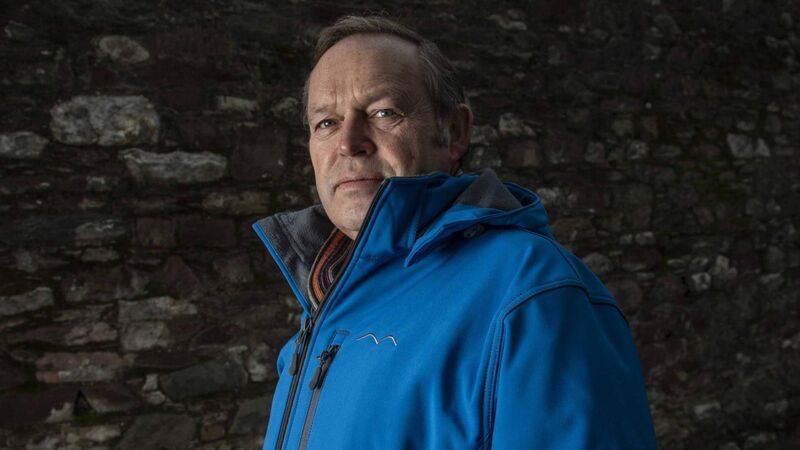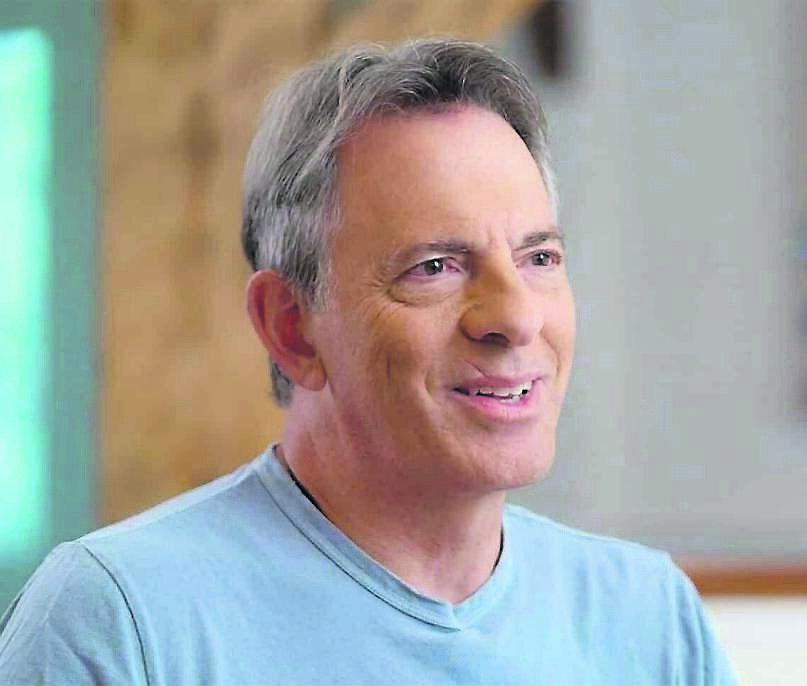Cork hosts screening of film that lays bare the challenges facing Ireland’s charity sector

Dermot Kavanagh, CEO of Cork Simon Community, who will be part of a Q&A panel after the screening of UnCharitable at the Triskel on Thursday, June 13.
IN 2023, director Stephen Gyllenhaal, father of actors Maggie and Jake, released UnCharitable, a documentary that examined how charitable organisations work and the public perception of how they should operate.
The documentary is an eye-opening experience that dispels myths, discusses issues, and explores how charities are adapting to new working methods.
The documentary is a call to arms to donors, backers, and advocates from big business and ordinary citizens.
There will be a special screening of it at the Triskel Cinema this Thursday, June 13, hosted by the Charities Institute Ireland. It will be followed by a question-and-answer session led by Áine Myler, CEO of Charities Institute Ireland (CII).
The panellists are from several different charitable organisations and are represented from a local perspective by Dermot Kavanagh, CEO of Cork Simon, and board member of Charities Institute Ireland.
Kavanagh says that the documentary gets to the heart of what it takes to run a charity that meets the needs of donors, funders, policymakers, and those who depend on its services.
“It’s a perfect opportunity to start a much-needed conversation about what we expect of charities and what they need to be able to meet those expectations, especially the need to be able to adequately resource the range of structures required to support the often-challenging work their frontline staff do every day,” he said.
Kavanagh also says that the documentary will allow people to look at charities differently from what they might currently do.
The film is an eye-opener for anyone who believes charities must have the wherewithal to serve and enhance their communities in the most efficient and effective way possible.

UnCharitable is based on a book by Dan Pallotta, a life-long charity advocate and entrepreneur whose efforts have raised more than $2billion for various causes over the last four decades.
In 2013, Pallotta gave a TED Talk on how the charity model was no longer working and why it needed to change. Over the years, there has been a disconnect between donors and charities. Ordinary people became frustrated to learn that their donations were not just going to charity users but also to fund overheads like staff payments, office rentals, marketing, and so on.
The TED Talk and documentary point out that money cannot simply go from person to person. It needs to go through a process and cover the cost of allowing the charity to function; this will enable the money to work more effectively for its users. Statistics prove that when money is spent on the business side, it leads to a massive increase in revenue.
The talk is one of the most watched TED events of all time, and Pallotta’s thinking has led to a dramatic shift in how charities work.
The takeaway is simple: if charity is to work, it must operate like a business, but people are uncomfortable with this idea. Myler explains that the concept of charity has evolved over many centuries and understands how the shift to a business model in the last 30 years has led to misunderstandings and misconceptions.
“Centuries ago, there was no social welfare system, and alleviating poverty was a big reason people gave money, but it did go straight to the frontline.
It was a completely different era before regulation, marketing, and, as the documentary says, overheads.
“Over the years, charities themselves have been a bit guilty of wanting to be seen as the organisation that spends as little as possible so that most of the money that they give goes to delivering services, but those services are only capable of being delivered because you have all the structures in place.”
Myler points out that today, not-for-profit organisations must comply with regulations, health and safety, data protection, safeguarding, and many other factors that didn’t exist decades ago.
She also says it is vital that there is education and awareness of how charities operate to ensure they can do their best job long-term.
“We need to bring the story to the business sector, so they understand that we work as they do and to foster relations with companies who are in the position to support various charities, but more importantly, we need people outside the sector to know.
We would like to be able to bring the documentary into schools or at least be able to give talks so that young people might consider a career in not-for-profit work.
Myler says a key concern of charities these days is recruiting and retaining the right people. The documentary points out that issues like poverty, climate change, and mental health are significant and need to be addressed by the most skilled people. Great problems need great minds, but great minds are hired by large companies that can offer lucrative packages, not by charities that cannot compete.
“Many say charity work is a vocation, but the same is true for doctors, who get paid well. People deserve to be paid, and if we want the most qualified staff, charities have to be able to pay for them.”
Myler also says that charities must operate in a businesslike fashion because the frontline can only operate effectively and efficiently if it’s got support from a back office.
“It means that cyber security is up to date, that protection is in order, and that investing in structures, processes, and people is essential. The documentary calls for people to understand and engage in the future of the not-for-profit sector.”
The screening is free, but tickets must be booked https://triskelartscentre.ie/events/uncharitable/







